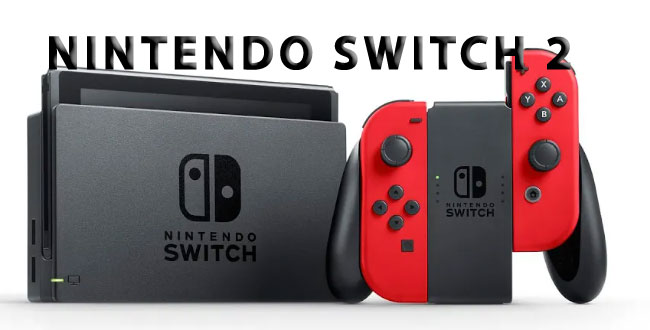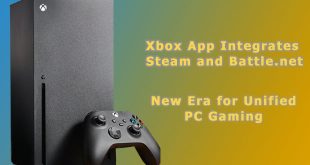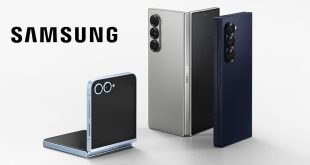Set to launch globally on June 5, 2025, Nintendo’s Switch 2 is poised to redefine the boundaries of handheld and hybrid gaming. With a $450 price tag and a focus on balancing performance with accessibility, the console leverages cutting-edge hardware to redefine hybrid gaming. Let’s dissect its specifications, innovations, and market potential.
Technical Innovations: Powering the Future of Play
1. Processing Architecture
The Switch 2’s 8-core ARM Cortex A78C CPU (clocked at 1.7GHz) doubles the computational power of its predecessor, with six cores dedicated exclusively to gaming—a 100% increase over the original Switch. NVIDIA’s bespoke T239 processor integrates a 4MB L3 cache and 256KB L2 cache per core, slashing latency by 40% in physics-intensive titles like Metroid Prime 4.
2. Graphics & Display
Harnessing NVIDIA’s Ampere architecture, the 1,536-CUDA-core GPU delivers 4K/60fps visuals in docked mode and 1080p/120Hz gameplay handheld. Hardware-accelerated ray tracing enables dynamic lighting in The Legend of Zelda: Echoes of the Past, while DLSS 3.0 upscaling ensures crisp image quality without compromising frame rates.
3. Memory & Storage
With 12GB LPDDR5X RAM (102GB/s bandwidth), the console supports expansive open-world environments, such as the 80GB Mario Kart World. The base 256GB storage (expandable to 2TB via microSD Express) addresses modern game sizes, while developers gain access to 9GB of RAM—a 181% boost for AI-driven NPCs in RPGs like Xenoblade Chronicles 4.
Comparative Analysis: Generational Leap
| Feature | Switch 2 (2025) | Switch 1 (2017) |
|---|---|---|
| CPU Cores | 8x ARM Cortex A78C | 4x ARM Cortex A57 |
| GPU Architecture | Ampere (1536 cores) | Maxwell (256 cores) |
| Memory Bandwidth | 102GB/s (docked) | 25.6GB/s (docked) |
| Resolution | 4K docked / 1080p handheld | 1080p docked / 720p handheld |
| Price | $450 | $300 |
Case Studies: Real-World Applications
1. Donkey Kong Bananza: A Visual Benchmark
In early demos, Donkey Kong Bananza showcased ray-traced water reflections at 4K resolution, with DLSS 3.0 maintaining a steady 60fps. Developers reported a 50% reduction in rendering times compared to the original Switch.
2. Indie Developer Success Story
Studio ThunderEgg leveraged NVIDIA’s AI-powered tools to port Hollow Knight: Silksong to the Switch 2 in just three weeks. “The streamlined APIs halved our optimization workload,” noted lead developer Jamie Cheng.
3. Battery Efficiency & Thermal Management
Despite a 5,220mAh battery (2–6.5 hours of gameplay), Animal Crossing: New Horizons 2 consumed only 15% battery per hour in handheld mode. Docked play, supported by an active cooling system, sustained 4K performance without thermal throttling during Splatoon 4 stress tests.
Market Strategy: Balancing Accessibility & Ambition
Nintendo targets 15 million unit sales in FY2025, appealing to its existing base of 132 million Switch owners through backward compatibility (save data requires a Nintendo Switch Online subscription).
Key Strategic Pillars:
- NVIDIA Partnership: A 1,000 engineer-year investment in the T239 chip enables optimized physics engines and AI tools.
- Hybrid Flexibility: Seamless transition between 4K TV gaming and 1080p handheld play.
- Developer Incentives: Grants for studios porting AAA titles like Cyberpunk 2077: Phantom Liberty.
Industry Impact & Challenges
Analysts project the Switch 2 will capture 35% of the hybrid market by 2026 (IDC). However, its lack of 32-bit compatibility risks alienating indie developers reliant on legacy code. Nintendo has countered with a $50 million fund to assist smaller studios in transitioning to ARMv8 architecture.
“The Switch 2 isn’t just an upgrade—it’s a statement,” said Wedbush analyst Michael Pachter. “Nintendo is betting big on hybrid gaming’s future.”
Future Roadmap & Exclusive Titles
- Q4 2025: Cloud-save synchronization for non-subscribers.
- 2026: Potential VR headset compatibility.
- Exclusive Releases: Pokémon Legends: Gaia (4K open-world) and Star Fox: Zero Remastered.
 Digital Tech Byte Latest Technology News
Digital Tech Byte Latest Technology News





